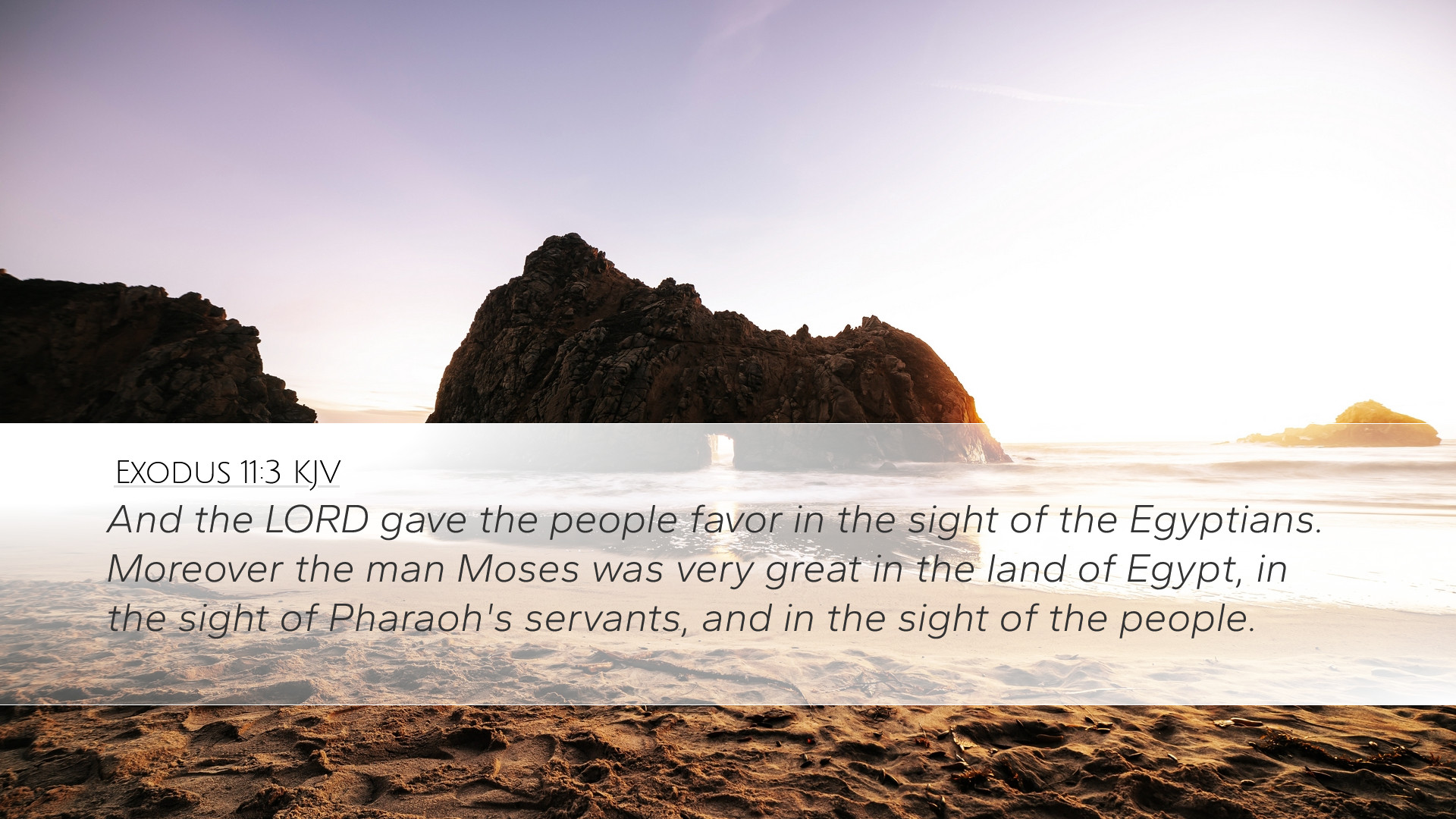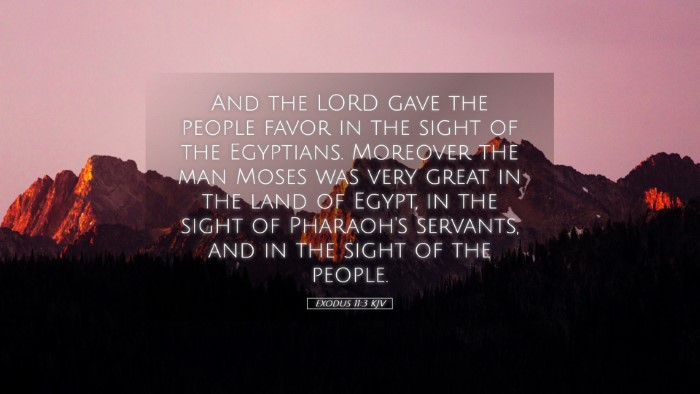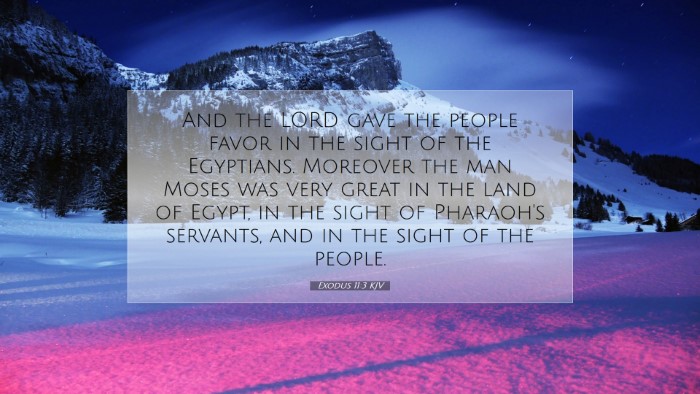Commentary on Exodus 11:3
Introduction
Exodus 11:3 states: “And the Lord gave the people favor in the sight of the Egyptians. Moreover, the man Moses was very great in the land of Egypt, in the sight of Pharaoh's servants, and in the sight of the people.” This verse serves as a pivotal moment in the narrative of the Exodus, encapsulating themes of divine favor and the stature of Moses amid impending judgment upon Egypt.
Contextual Background
This verse is set within the context of the final plague, which would lead to the liberation of the Israelites from Egyptian bondage. Each preceding chapter reveals the increasing severity of God’s judgments against Pharaoh and the gods of Egypt, as well as the hardening of Pharaoh’s heart.
Divine Favor
The statement that “the Lord gave the people favor in the sight of the Egyptians” (Ex. 11:3) is significant. This favor can be understood in several layers:
- Divine Enablement: The favor granted to the Israelites demonstrates God's providence. Albert Barnes notes that God was taking steps to secure the freedom of His people, aligning the hearts of the Egyptians to assist them willingly.
- Sign of Judgment: This favor also serves as a precursor to the judgment about to befall Egypt. It emphasizes the contrast between the Egyptians’ stance and that of the Israelites. Adam Clarke highlights that this favor was not merely for assistance but indicative of God’s overarching plan.
- Psychological Shift: Matthew Henry elaborates on the psychological implications of this favor. The Egyptians, once oppressors, were now being moved to compassion, illustrating God’s capacity to change hearts in preparation for a decisive act of liberation.
Moses’ Greatness
The verse also asserts that “the man Moses was very great in the land of Egypt.” This greatness is noteworthy in several dimensions:
- Leadership Qualities: According to Barnes, Moses’ greatness stems from his unique role as mediator between God and the people. He embodies the prophetic voice of God, demonstrating courage and resilience amid adversity.
- Public Perception: Clarke emphasizes that Moses’ reputation had grown significantly due to the miracles performed and the plagues delivered. His position was recognized both by Pharaoh’s servants and the general populace, showcasing the metamorphosis of Moses from an Egyptian prince to a prophet of Hebrew descent.
- Contrast to Pharaoh: Matthew Henry notes the stark contrast between Moses and Pharaoh. While Pharaoh’s hardness led him down a path of destruction, Moses’ humility and obedience elevated him, demonstrating the principle that true greatness is aligned with God’s purposes.
Theological Implications
This commentary on Exodus 11:3 presents rich theological implications, particularly regarding the character of God and His methods in human affairs:
- Sovereignty of God: The verse underscores God's sovereign control over history and the affairs of nations. He orchestrates events to fulfill His covenant promises to Israel, providing an assurance of His unchanging nature to His people.
- God's Use of Individuals: It highlights the role of individuals like Moses in God's redemptive plan. The elevation of Moses reflects the idea that God empowers leaders to fulfill His divine purposes.
- Divine Judgment and Mercy: This verse precedes the impending judgment, reminding readers that while God is merciful to His people, He also judges sin and rebellion against Him. The favor shown to the Israelites, juxtaposed with Egypt's fate, marks a key theme in biblical theology.
Application for Pastors and Scholars
For pastors and theologians, the insights garnered from this verse prompt reflective consideration on several fronts:
- Emphasizing God’s Sovereignty: Sermons can be crafted to articulate God’s sovereignty in our lives and communities, especially in times of trials, reinforcing faith in God’s plans.
- Promoting Leadership in Faith: The character of Moses serves as a model for pastoral leadership today. His humility, reliance on God, and vibrant faith exemplify traits for church leaders.
- Addressing Favor in Community: Discussions about God’s favor can encourage congregations to embrace their identity as children of God, living in a manner reflective of His grace and mercy.
Conclusion
Exodus 11:3 encapsulates essential themes in the biblical narrative—divine favor, human leadership, and the sovereignty of God in directing the course of history. As scholars delve into this passage, they are reminded to examine the interplay between God’s providence and human responsibility, encouraging a deeper understanding of God's dealings with His people and the nations of the earth.


